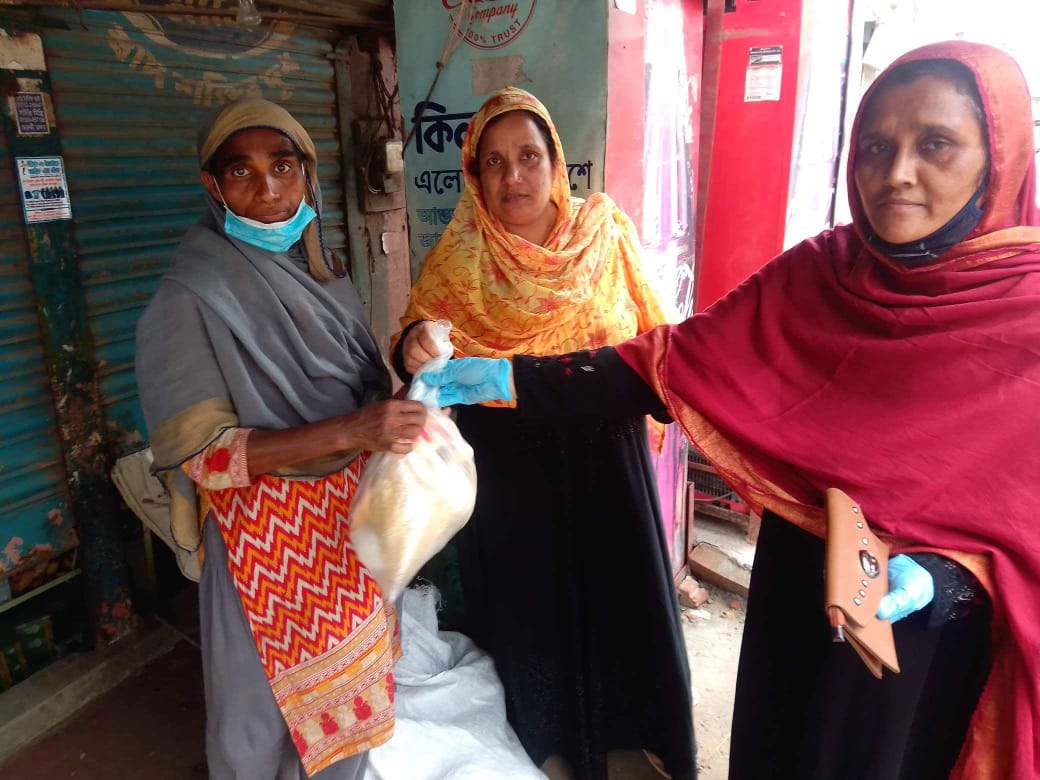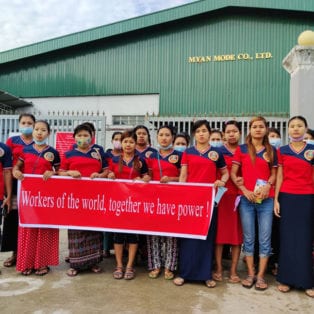As garment factories shut down in Bangladesh during the novel coronavirus pandemic, leaving workers without wages or access to support services, unions and Worker Community Associations (WCAs) around the country rapidly shifted to address the crisis, with Worker...
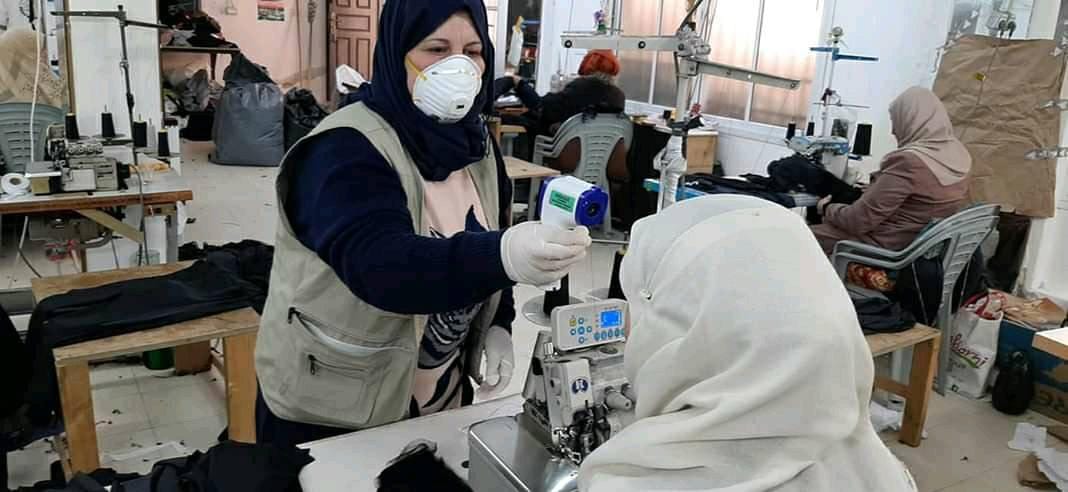
During the COVID-19 pandemic, members of the Palestinian General Federation of Trade Unions, a Solidarity Center partner, tested workers for fever. Credit: PGFTU
Each year, more than 2 million workers die on the job—more than 6,000 a day worldwide. Hundreds of millions more workers a year suffer from non-fatal job-related accidents and illnesses.
The global coronavirus pandemic highlighted and exacerbated the vast inequities facing working people as many risked exposure to the virus without protective safety equipment, tending to sick patients, staffing grocery stores and driving public transport.
In partnership with the Solidarity Center, unions negotiated stepped-up protections and improved wages for workers who risked their lives on the front lines of the crisis, and supported unions as they worked with governments and employers to ensure those furloughed or laid off during the pandemic received wages and social protections such as access to food distribution and unemployment compensation.
Around the world, the Solidarity Center supports networks of unions that are pushing for workplace health and safety measures, such as in Serbia, where unions created a national network of trade union activists to improve workplace safety and health monitoring, and bargain collectively with employers to expand such protections for all workers, regardless of whether they are union members.
On April 28, workers and worker rights activists like the Solidarity Center observe World Day for Safety and Health at Work, an annual day of remembrance for workers who died or were injured on the job and a day to renew the struggle for decent work—family-supporting wages, sick leave and other benefits and safe and healthy working conditions.
Morocco Garment Workers Stand Strong against Union Busting
Garment workers at the Miroglio Maroc factory are standing strong with 14 co-workers who they say were fired for speaking out against the lack of sufficient safety gear and other protective measures at the workplace during the novel coronavirus pandemic. Three workers...
Myanmar Garment Workers Stand Strong, Win New Pact
Workers at the Myan Mode garment factory in Myanmar (Burma) are celebrating the return to the job of many recently fired union members. Following a two-month fight against the factory’s attempt to use COVID-19 to destroy their union, they won an agreement May 30 that...
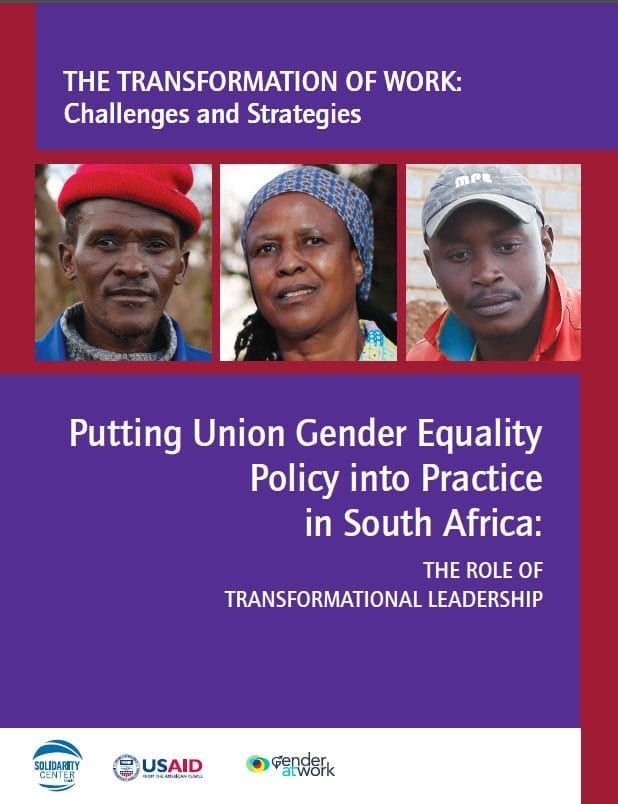
Putting Union Gender Equality Policy into Practice in South Africa
Unions are key drivers advancing gender equality. Yet in many countries around the world, there is a disconnect between labor union policy and practice in transforming gender inequalities within trade unions. Through the lens of the South African union movement, this...
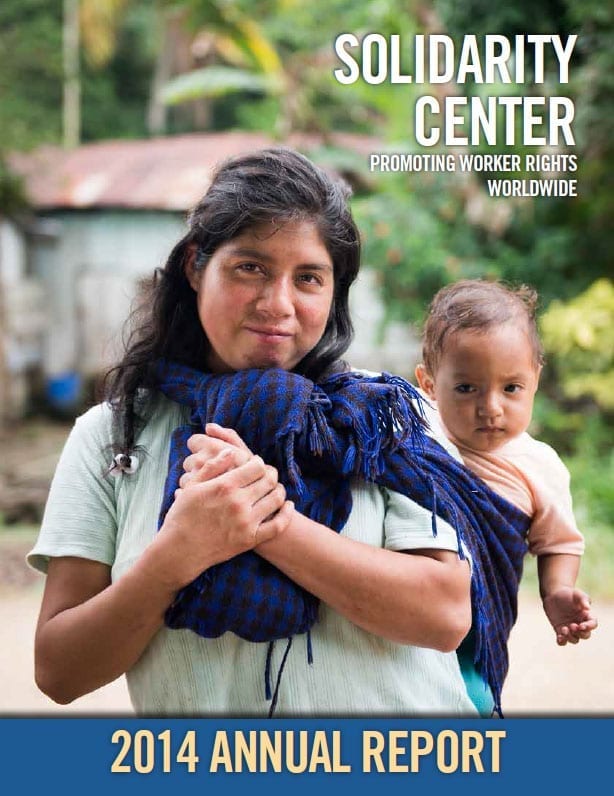
Annual Report 2014
Download here.
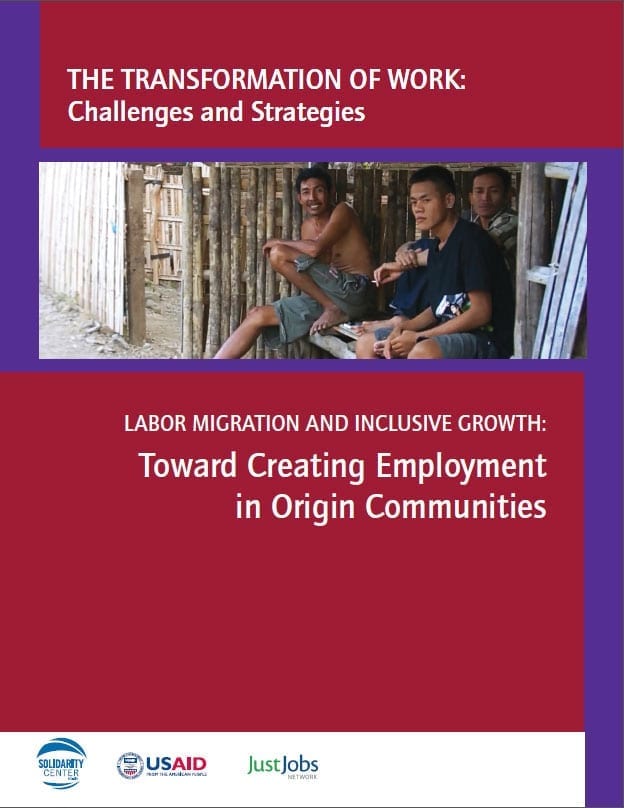
Labor Migration and Inclusive Growth: Toward Creating Employment in Origin Communities (2015)
This paper investigates the intersection of labor migration and the inclusive growth agenda, and seeks to recommend policies so governments of origin countries can, in part, expand labor migration’s positive impacts by making migrant workers agents in promoting and...
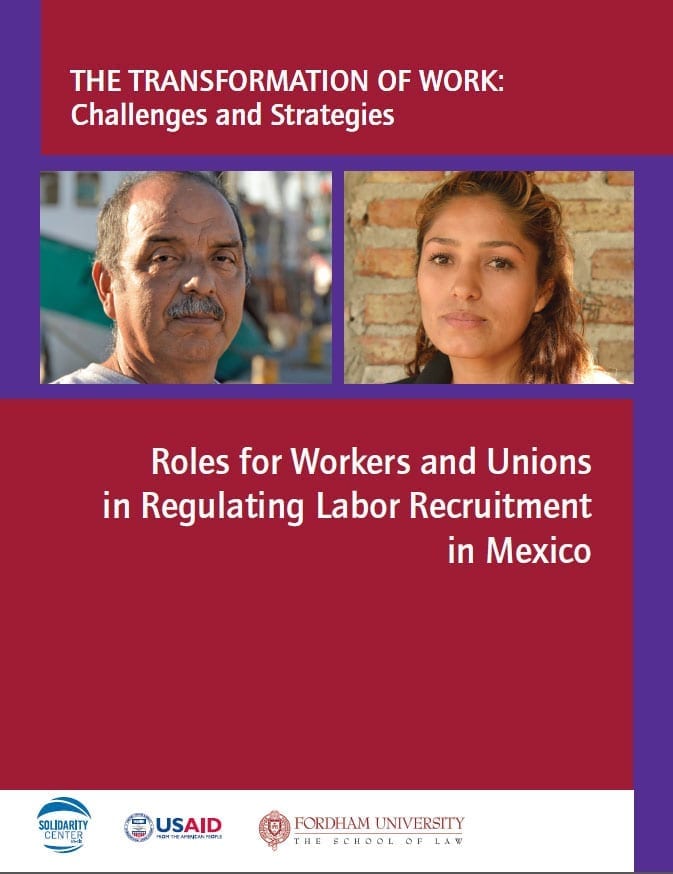
Roles for Workers and Unions in Regulating Labor Recruitment in Mexico (2015)
Fordham University law professor Jennifer Gordon examines the roles of guest workers as organizers, monitors and policy-setters in supply chain initiatives and other efforts to address labor recruitment violations. Download here.
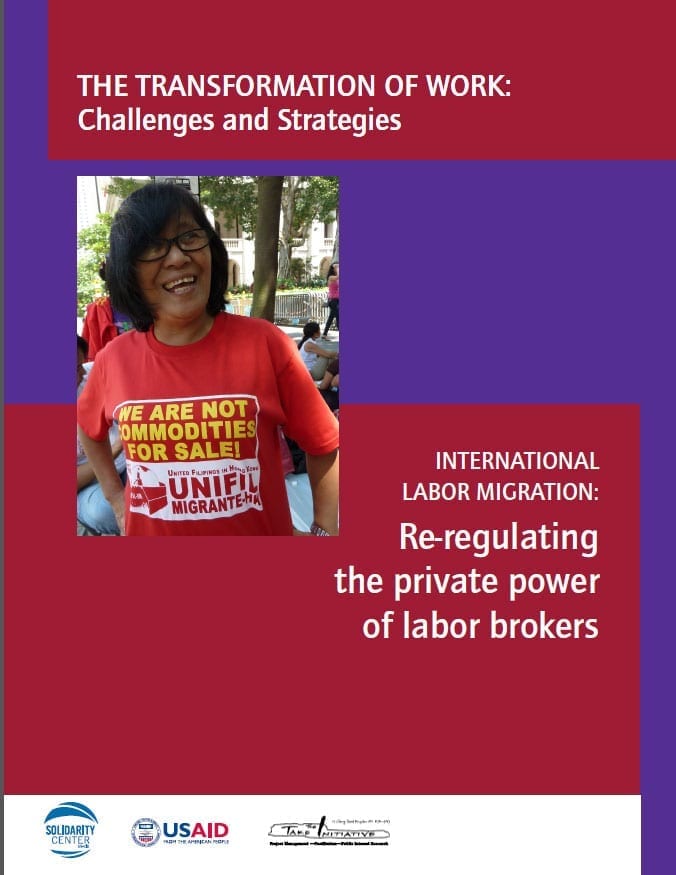
International Labor Migration: Re-regulating the Private Power of Labor Brokers (2015)
In this review of initiatives to regulate labor brokers, the authors find that state and civil society efforts to address migrant worker exploitation point to potential new policies, most effectively led by state-backed regulatory frameworks. Download here.
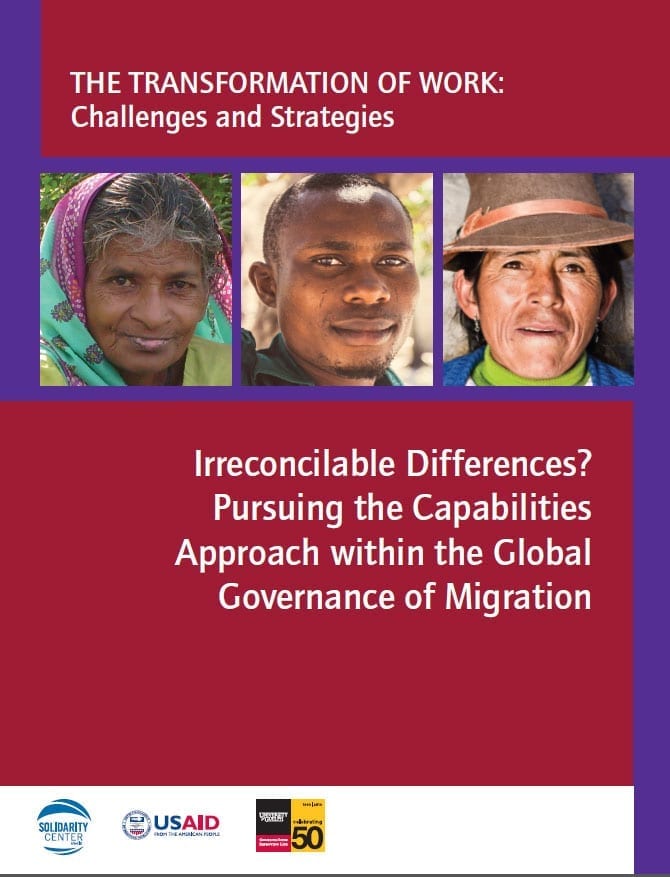
Irreconciliable Differences? Pursuing the Capabilities Approach within the Global Governance of Migration (2014)
This report on global labor migration challenges the current “triple win” paradigm in global migration policy through a worker rights lens, and argues that when applying the now-accepted "capabilities" approach, the international development community must focus on...

